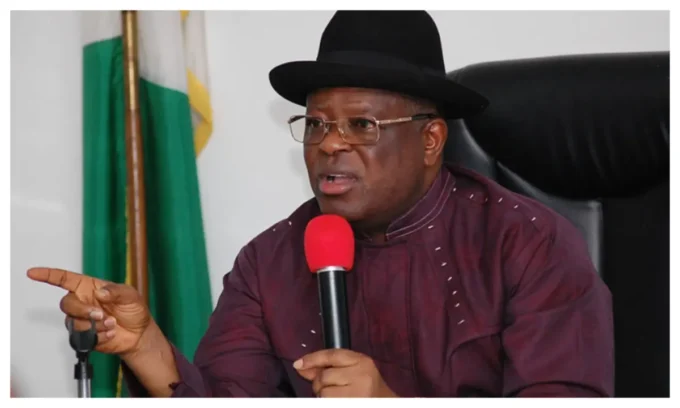Kano’s Political Landscape Shifts as Kwankwasiyya Scholars Join APC

In a significant shake-up in Kano State’s political scene, members of the New Nigeria People’s Party (NNPP) and the influential Kwankwasiyya Movement have made a dramatic move by defecting to the ruling All Progressives Congress (APC). This recent shift underscores growing momentum for the APC in a state long viewed as a stronghold of the Kwankwasiyya camp.
View Table of Contents
ToggleDefections Signal Changing Political Allegiances
The latest wave of defections came into the spotlight with the exit of two prominent groups: the Kwankwasiyya Scholars, led by Honorable Ahmad Yusuf Maidoki, and Honorable Faruq Abdulrazak Musa, a former NNPP chairmanship aspirant from Tudun Wada Local Government Area. Their official departure was announced during a meeting with Senator Barau I. Jibrin, the Deputy Senate President, at his residence in Abuja last Friday.
Highlighting the significance of this political realignment was the symbolic discarding of the red caps—an emblem of the Kwankwasiyya Movement—by the defecting members. This public gesture underscored their complete embrace of the APC’s policies and ideology. The red cap, deeply associated with former Kano Governor Rabiu Kwankwaso and the NNPP’s grassroots identity, is more than just a piece of clothing; it represents loyalty and political identity. Its abandonment indicates a serious shift in loyalty.
Senator Barau described the move as part of a broader trend in Kano politics. He pointed to the APC’s “people-focused governance and development agenda” as the key motivators driving these defections. “They thrashed the red cap,” he said, referring to the symbolic rejection of Kwankwasiyya, “and embraced the People’s Party, APC, because of our commitment to developing our people and state.”
APC’s Growing Dominance in Kano
Senator Barau painted a picture of a changing political landscape in Kano. He pointed out that while the NNPP and Kwankwasiyya Movement once had deep roots in the state, their influence is waning. According to him, the NNPP’s presence is now mainly concentrated in limited parts of the Kano Central Senatorial District. He further noted that in Kano North, the party’s footprint is virtually non-existent. Kano South, a region previously considered a battleground, is witnessing key NNPP figures gearing up to follow suit and join the APC.
He stressed that APC’s inclusive political culture makes it an attractive choice for politicians across various lines. “APC is big enough to accommodate all,” Senator Barau assured the new members, promising equal treatment for everyone within the party structure. This inclusive approach, combined with the party’s focus on tangible development projects and favorable legislations, appears to be drawing disillusioned NNPP members to its fold.
The defections come ahead of critical elections, with political actors positioning themselves to align with the party believed to be on the rise. It also highlights the APC’s strategy to consolidate power by attracting key local actors in regions previously dominated by rival parties.
What This Means for Kano Politics
This political shift reiterates the evolving dynamics in Kano’s political landscape. The NNPP, though popular in certain quarters, faces challenges holding onto key political actors amid the APC’s rising appeal. The defection of prominent scholars and local government aspirants signifies cracks in the once solid Kwankwasiyya movement.
For the APC, these fresh additions bolster its ranks and strengthen its presence in a critical northern state. The party’s focus on development and governance, combined with a welcoming stance towards new members, reveals its strategy to create a broad coalition ahead of forthcoming electoral contests.
As Kano moves closer to elections, the political realignments will likely continue, with more politicians evaluating their options. The shifting loyalties reflect the broader Nigerian political culture, where pragmatism and developmental promises often outweigh previous affiliations.
The fallout from this latest defection wave may reshape voter perceptions and party strengths across Kano. For now, the APC appears to be gaining ground steadily, riding on an agenda that resonates with many politicians and grassroots supporters alike.
Latest Posts
When Love Meets Scrutiny: Karoline Leavitt’s Age Gap Marriage Sparks Online Firestorm
White House Press Secretary Karoline Leavitt can't get away from the snide...
9 hours AgoObidient Movement Strengthens Presence in Kaduna with New Interim Leadership Team
A 13-member interim State Coordinating Council (SCC) of the Obidient Movement for...
4 days AgoShettima Calls for Unity in Kano Amid Rising Political Tensions
Vice President Kashim Shettima has urged politicians in Kano State to uphold...
4 days AgoVanessa Trump: What You dont know
Vanessa Trump's romance with Tiger Woods is the real deal, but we...
1 week Ago












Leave a comment